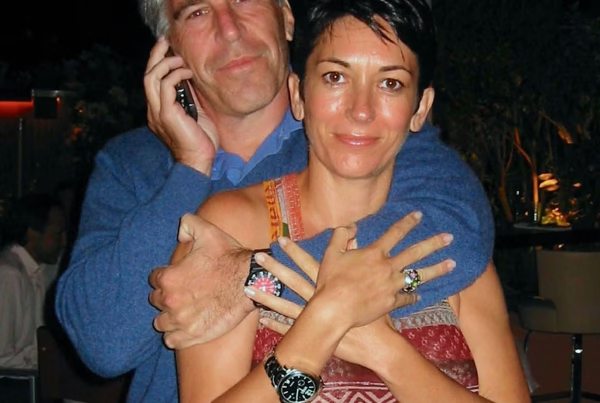I grew up thinking about the world in pairs. When I was younger, the bond with my best friend felt sacred. We were inseparable, tied together till the end of time. I wasn’t always polyamorous; it didn’t come naturally to me. Navigating friendships in middle school was the first time I unknowingly learned mono-normative behavior. The definition of a best friend is a preferred friend over other friends. Similarly, couple privilege refers to the advantage a conventionally acceptable couple in society, generally cis-presenting and heteronormative, has over secondary partners in polyamorous or ethically non-monogamous relationships.
The idea that one partner would fulfill all my needs was ingrained in me. I imagined doing everything with them—movies, parties, sharing duties. These ideas didn’t exist in a vacuum; people around me expected me to have a companion. Being alone at events was seen as brave: “Wow, you came clubbing alone? I could never.” Our expectations of a plus one are not limited to events or nesting. Catching up with friends often involves questions about my “SO,” and family gauges the seriousness of my relationship using the relationship escalator as the metric.
 Having couple privilege means having an advantage over others: those in non-heteronormative queer relationships, individuals practicing solo-polyamory, and anyone living in a non-conventional household. Presenting as a couple from a conventional standpoint allows for a double life and provides an internalized security. When I didn’t assume my best friend to be my plus one, or if they chose others over me, I felt replaced. This fear persisted in my relationships and manifested in potentially harmful behaviors:
Having couple privilege means having an advantage over others: those in non-heteronormative queer relationships, individuals practicing solo-polyamory, and anyone living in a non-conventional household. Presenting as a couple from a conventional standpoint allows for a double life and provides an internalized security. When I didn’t assume my best friend to be my plus one, or if they chose others over me, I felt replaced. This fear persisted in my relationships and manifested in potentially harmful behaviors:
- Veto Power: Your primary partner gets a say in whom you date and can ask you to end a relationship based on insecurity or “safeguarding” your relationship.
Reflect: What if a partner stopped seeing me because their primary partner felt insecure and threatened, despite me doing nothing wrong?
- Rules: Your primary partner can establish boundaries in your relationship with a secondary. This can range from not watching movies together to not having penetrative intercourse with anyone aside from the primary.
Reflect: Should my insecurity define my partner’s relationship with another adult? Is my secondary aware of these rules before they get invested emotionally and logistically? Do they have any rules they want to negotiate?
- Wanting Things to Stay the Same: Nothing changes in your primary relationship, but you want to pursue others.
Reflect: Are you considering what your secondaries want? Are they okay with you spending the majority of your time with your primary? What do they want from the relationship? Can you handle it if they find a dynamic that treats them more equally?
- Date/Play with Both or None: The assumption of a unit brings you security but can become a caveat when you cannot pursue relationships outside the primary in their fullest forms.
Reflect: Does the unicorn know what they are signing up for? Do they have the space to explore dynamics with both of you equally? Can they say no at all times?
 My journey wasn’t straightforward. I transitioned from a non-monogamous relationship to polyamory by questioning the role different relationships played for me. It didn’t make sense to prioritize individuals solely based on whom I started dating first. The boundaries of my relationships changed over time, with a lot of communication, confusion, and de-escalation in my “primary” relationship. Your trajectory might differ, and you may not pursue polyamory while exploring other non-monogamous structures. Society’s norms and time constraints might prevent you from loving everyone in your polycule equally. What’s important is to keep your behavior in check, question your assumptions, and ensure your secondaries are aware of boundaries and can negotiate them.
My journey wasn’t straightforward. I transitioned from a non-monogamous relationship to polyamory by questioning the role different relationships played for me. It didn’t make sense to prioritize individuals solely based on whom I started dating first. The boundaries of my relationships changed over time, with a lot of communication, confusion, and de-escalation in my “primary” relationship. Your trajectory might differ, and you may not pursue polyamory while exploring other non-monogamous structures. Society’s norms and time constraints might prevent you from loving everyone in your polycule equally. What’s important is to keep your behavior in check, question your assumptions, and ensure your secondaries are aware of boundaries and can negotiate them.
When transitioning to polyamory from a closed relationship, consider these questions about your relationship and its role in your journey. Couple privilege allows a conventionally acceptable couple to have advantages over other romantic relationships, seen in:
- Veto Power: Your primary partner can ask you to end a relationship.
- Rules: Your primary partner can set boundaries for secondary relationships.
- Wanting Things to Stay the Same: No changes in the primary relationship while pursuing others.
- Date/Play with Both or None: Security from being a unit but limits on pursuing outside relationships.
Being part of a larger society assigns you a social location, which differs based on context. Practicing polyamory places you at a disadvantage compared to cisgender-heterosexual monogamous norms, resulting in social isolation, difficulty finding a community, and discrimination. However, presenting as a traditional monogamous couple avoids isolation, weird questions, and being perceived as “incapable of commitment.” We exist in a culture of compulsory monogamy, where partners are expected to be each other’s +1 at social events, share finances, and live together.
If you pursue polyamory and your primary partner meets someone they like, how does it make you feel? How do you react if you want to do something new with a potential date, but your primary gets grumpy? It’s natural to feel resistance when unlearning monogamy. Insecurity arises from perceived threats to your couple life. While opening up your relationship, treat yourself and your partner as individuals with unique interests and multidimensional personalities. Recognize the unique dynamic you create with each person you meet.
If you maintain your status quo as a couple, keep these in mind:
– Inform dates of any rules upfront.
– Be receptive to negotiation.
– Ask what your date wants from the relationship.
– Make your primary feel secure without restricting your date’s decision-making.
– Let go when your partner wants to try something new and understand your own needs from the dynamic.
Remember, constant self-reflection and open communication are key. Recognizing and addressing couple privilege fosters equitable and fulfilling relationships. Keep questioning and stay open to growth.





